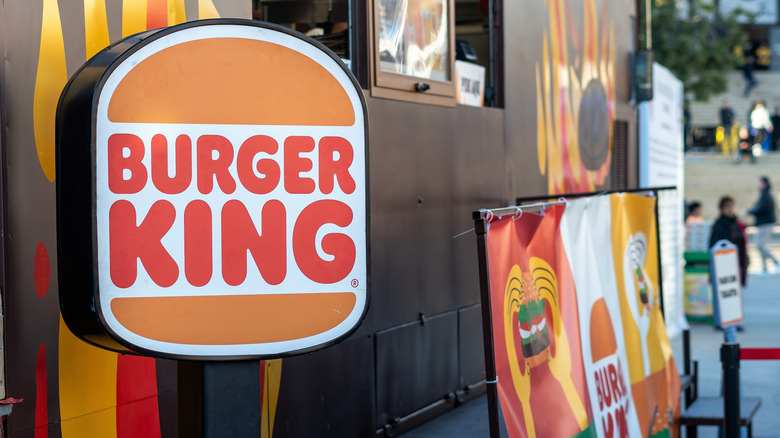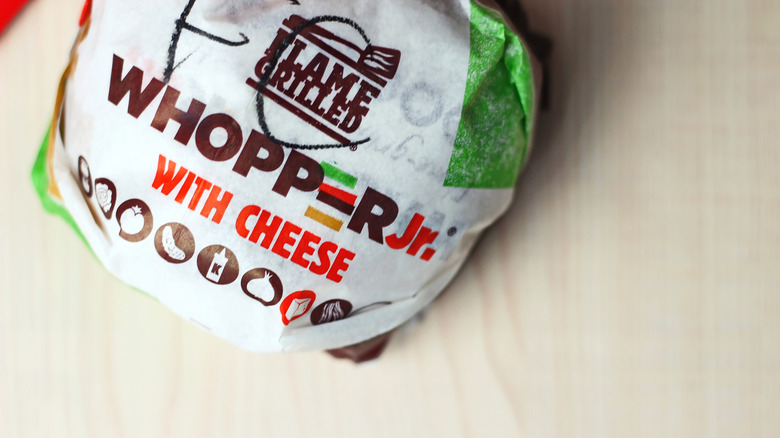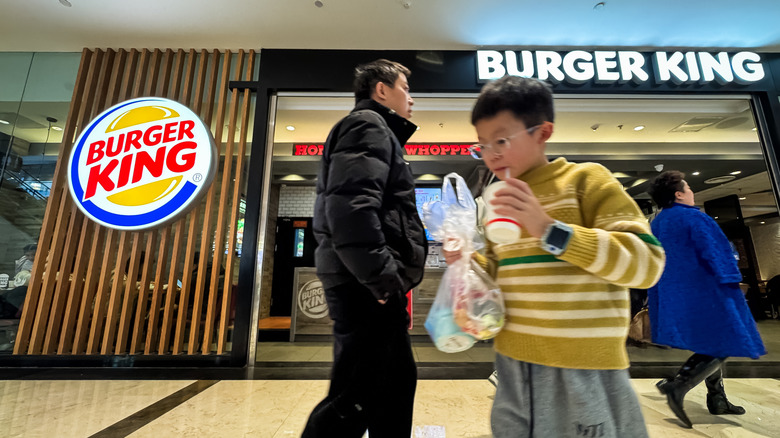How Much Money Burger King Franchise Owners Really Make In A Year
If you want to estimate what a Burger King restaurant can make in sales, look at the numbers most operators see. According to Technomic data for 2024, via Nation's Restaurant News, the average Burger King in the United States brings in $1.63 million in yearly sales. The largest Burger King franchisee, Carrols Restaurant Group, gives even more details in its 2023 Form 10-K. The average weekly sales per store was $33,812, which makes it $1,758,224 in 52 weeks (a year) across all Carrols Burger King units. Out of this, it spent $488,789 (27.8%) on food, drinks, and packaging, $569,660 (32.4%) went to paying for labor, rent used up $121,318 (6.9%), advertising cost $72,089 (4.1%), while other operating costs were $274,283 (15.6%).
After these bills were paid, the average Carrols Burger King unit had $232,089 or 13.2% left from sales at the end of the year. Yet, that is not what they took home. The owner still had to pay for loans, personal salary, taxes, and other business costs. So, even if two owners have stores with the same sales, one may end up with more profit than the other, depending on how well they manage expenses like loans or rent. The $232,089 leftover is just a starting figure, and it is different from how much a Chick-Fil-A franchise owner makes in a year or even the surprising amount of money McDonald's owners make.
Why earnings may differ across franchisees
According to Burger King's franchising guide, franchisees pay a royalty fee of 4.5% of total sales, and an advertisement fund fee also of 4.5%. So for every $100 in sales, $4.50 goes to Burger King as royalty, and another $4.50 goes to advertising, before paying for wages, or rent. Burger King also charges $500 a month for building improvements, $600 per year for access to BK University materials, 30 cents for each digital app transaction, and $1,000 per year per store for the Burger King Foundation. Also, Burger King requires owners to remodel their restaurants to keep up with the company's goal for 85% to 90% of its U.S. stores to have a modern image by 2028. These upgrades, be it a new interior or exterior, is mostly paid for by the owner.
Burger King sometimes offers help with costs like the $250 million "Royal Reset" incentive for tech, equipment, enhancements, and remodels in 2022, and an additional $300 million remodel program in 2024, per PR Newswire. Yet, these are time-limited offers, and the fast food chain does not plan any more company help after these programs end. As a result, owners resort to taking out loans for these remodels. Carrols reported that its average remodel cost was about $1.3 million per restaurant in 2023, but it can range from $800,000 to $1.7 million, according to its 2023 Form 10-K with the SEC.
Before you buy a Burger King franchise
To buy a Burger King franchise, you should have at least $1,000,000 in total assets and $500,000 in cash or money you can easily use. The company also requires owners who can promise to pay the store's bills and debts themselves if needed. This means you will need to show bank statements and a personal financial statement. If you want to use a loan backed by the Small Business Administration (SBA) to finance this, the lender will ask for Form 413, which is a personal financial statement, and will check your information against its latest rules.
To get an SBA loan as of June 2025, you must put in at least 10% of the total cost from your own money or from the seller. You can use your savings, or the seller can help with part of it, but the seller's share can only cover up to 50% of the required amount, via Byline Bank. If you use seller financing for this, the seller can't collect any payments on their part until you finish paying off the SBA loan. After you meet Burger King's money rules, you will need to pay for the land, construction, equipment, permits, licenses, starting inventory, and money to cover several months of wages, rent, and bills before the store makes a profit. So match your funding to each stage and choose a financial advisor if you have to.


